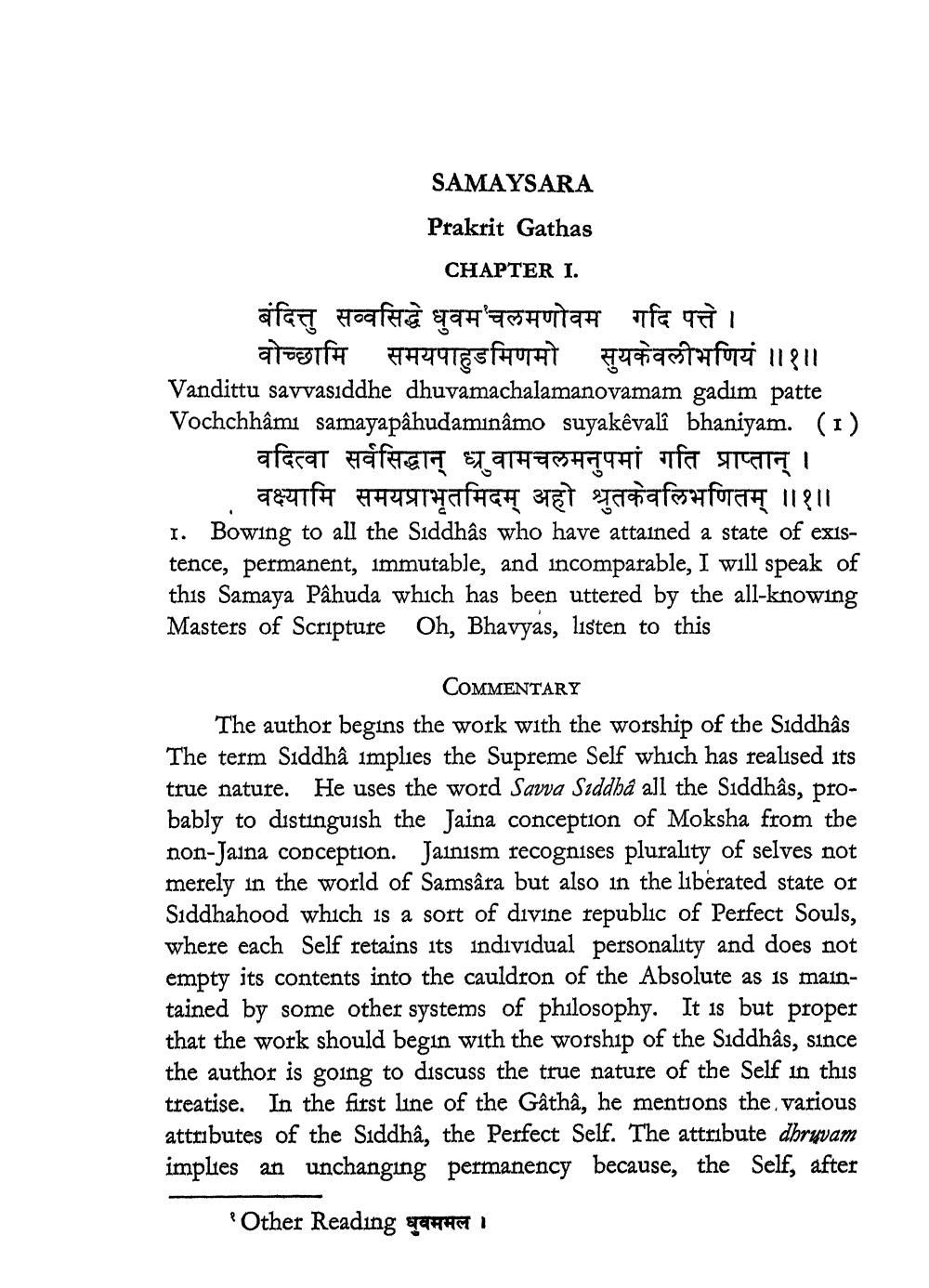________________
SAMAYSARA
Prakrit Gathas
CHAPTER I. बंदित्त सव्वसिद्धे धवम'चलमणोवम गदि पत्ते ।
वोच्छामि समयपाहुडमिणमो सुयकेवलीभणियं ॥१॥ Vandittu savvasiddhe dhuvamachalamanovamam gadım patte Vochchhâmı samayapâhudaminamo suyakêvalî bhaniyam. (1)
वदित्वा सर्वसिद्धान् ध्र वामचलमनुपमां गति प्राप्तान् ।
वक्ष्यामि समयप्राभूतमिदम् अहो श्रुतकेवलिभणितम् ॥१॥ I. Bowing to all the Siddhâs who have attained a state of existence, permanent, immutable, and incomparable, I will speak of this Samaya Pâhuda which has been uttered by the all-knowing Masters of Scripture Oh, Bhavyas, listen to this
COMMENTARY The author begins the work with the worship of the Siddhâs The term Sıddhâ implies the Supreme Self which has realised its true nature. He uses the word Savva Siddhâ all the Siddhâs, probably to distinguish the Jaina conception of Moksha from the non-Jaina conception. Jainism recognises plurality of selves not merely in the world of Samsara but also in the liberated state or Sıddhahood which is a sort of divine republic of Perfect Souls, where each Self retains its individual personality and does not empty its contents into the cauldron of the Absolute as is maintained by some other systems of philosophy. It is but proper that the work should begin with the worship of the Siddhâs, since the author is going to discuss the true nature of the Self in this treatise. In the first line of the Gâthâ, he mentions the various attributes of the Siddhâ, the Perfect Self. The attribute dhruvam implies an unchanging permanency because, the Self, after
'Other Reading धुवममल ।




